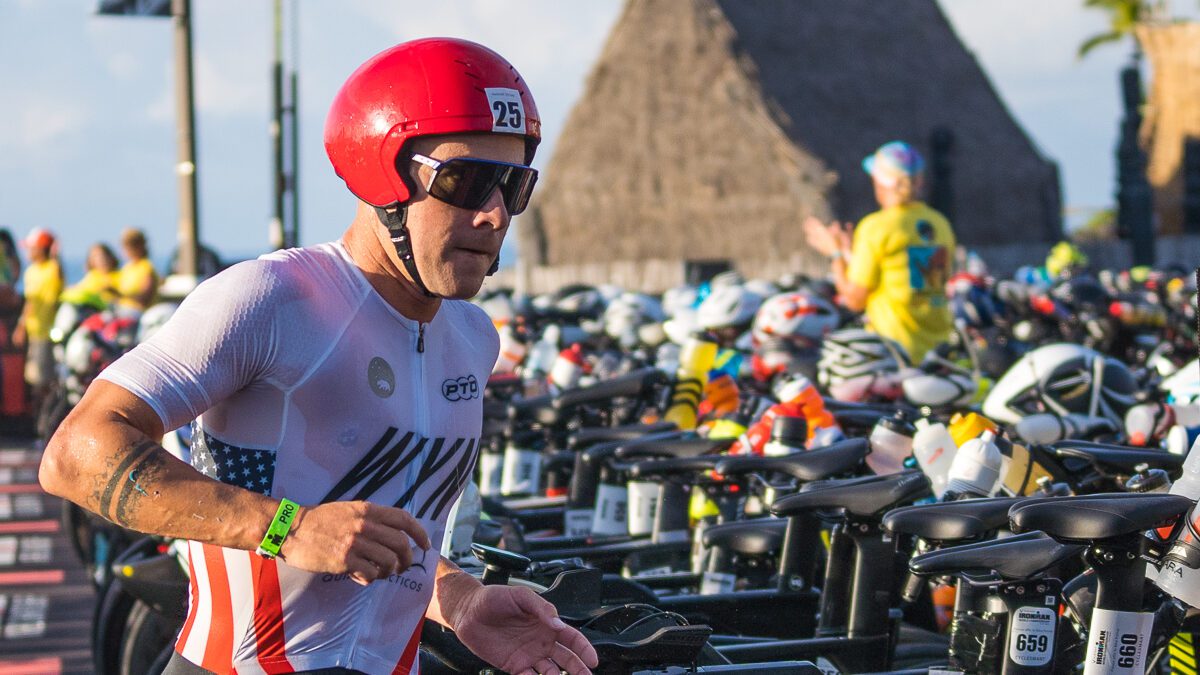Collin Chartier’s EPO case leaves us with more questions than answers
A 'tell-all' interview leads to confusion and frustration for many in the sport
 Photo by:
Kevin Mackinnon
Photo by:
Kevin Mackinnon
There are many reasons that the recent news of Collin Chartier’s positive EPO test is rocking the triathlon world right now. The American burst into prominence last year with his first Ironman title in Mont-Tremblant, Quebec, and followed that up with a huge $100,000 payday at the Professional Triathletes Organization (PTO) US Open just a few weeks later.
The fact that Chartier is closely associated with many of the top names in the sport has no-doubt spiked interest in his case. To be clear, Chartier has stated that his training partners and coach had no idea and no involvement in his use of EPO, and there has been no evidence to the contrary. Both Lionel Sanders, who trained with Chartier leading into the Ironman World Championship, and Mikal Iden, his coach, have made it clear that they didn’t know what Chartier was doing and don’t condone it in any way.
Chartier’s interview on the How They Train podcast was billed as a “tell-all doping interview,” but in the end Chartier’s comments have served to only add to the confusion and frustration around the case.
Top guys are doping
“I really wanted to win this year and beat the best,” Chartier said in the interview. “At the end of the day, I don’t believe they’re clean and if I’m going to try to win, there’s no amount of self-belief I can have in myself if I believe the top guys are doping. I think it’s sad that I came to this decision. I have no evidence that the top guys are, it’s just the belief I had and what led me to dope.”
Investigation
During the interview Chartier said that the International Testing Agency (ITA), the organization that does drug testing for Ironman, did a “thorough investigation into whether or not this was a bigger doping ring in the sport because they’re really interested in seeing if this is an endemic problem in the sport.”
Lionel Sanders: ‘Was I trying to keep up with a dude who was juicing?’
The ITA has confirmed that there was an investigation, but we’re still awaiting more details. If there was an investigation into a “bigger doping ring,” it would seem logical that Chartier’s coach and training partners would have been interviewed, but both Sanders and Iden said they were only learning about the positive test on Monday.
Research
During the interview Chartier said that his knowledge around the doping process came from watching the documentary “Icarus,” where he learned that EPO was available online, and doing a Google search on how much to administer.
Turns out, though, that Chartier would have had at least a bit of experience with bloodwork and athletes. On his LinkedIn page, Chartier lists a stint of just over two years where he was an “undergrad researcher” at Marymount University.
“Collin is the lead researcher working with Dr. Michael Nordvall in the study Hemoglobin, Hematocrit, and Anthropometric Alterations during the Competitive Triathlon and Cross Country Seasons. He is responsible for the design, collection, and statistical analysis of the study. He has experience in blood sample collecting, micro-hematocrit monitors, skin fold caliper testing, BIA body composition machines, and working with human subjects. His study achieved IRB Approval and will be submitted to present at the 2016 ACSM Conference.”
Marymount was appropriately proud of Chartier’s Ironman Mont-Tremblant win and celebrated with a story on the university’s website, which included this background on his time at the school.
Questions to be answered
Chartier’s “tell all” seems to fall well short of doing just that. We have reached out to Chartier requesting an interview to follow up on some of these questions, but have not received any response. Hopefully we’ll glean more information on this case from the ITA when more details on the investigation become available.
“How did you do it, who helped, who else is involved, and give the full story of why,” Ben Hoffman asked in an Instagram post directed at Chartier.
“If you are really sorry, and you want my forgiveness, earn it and prove it: give back stolen prize money and sponsorship dollars, contact fellow athletes with personal apologies, work to make a meaningful difference in anti-doping efforts, and for damn sure tell the whole truth,” Hoffman wrote.
With files from David Gutnick. This article was originally published in Triathlon Magazine
